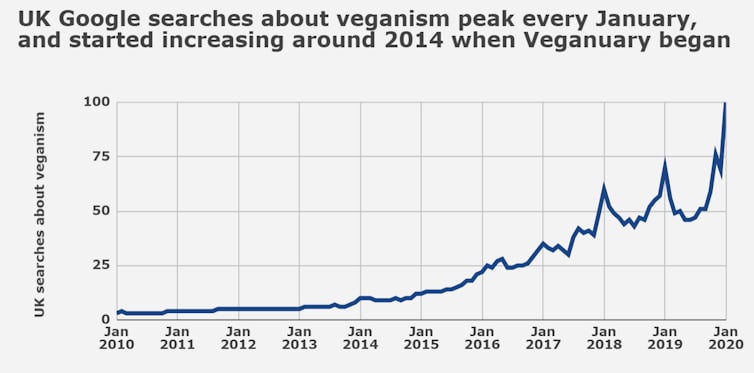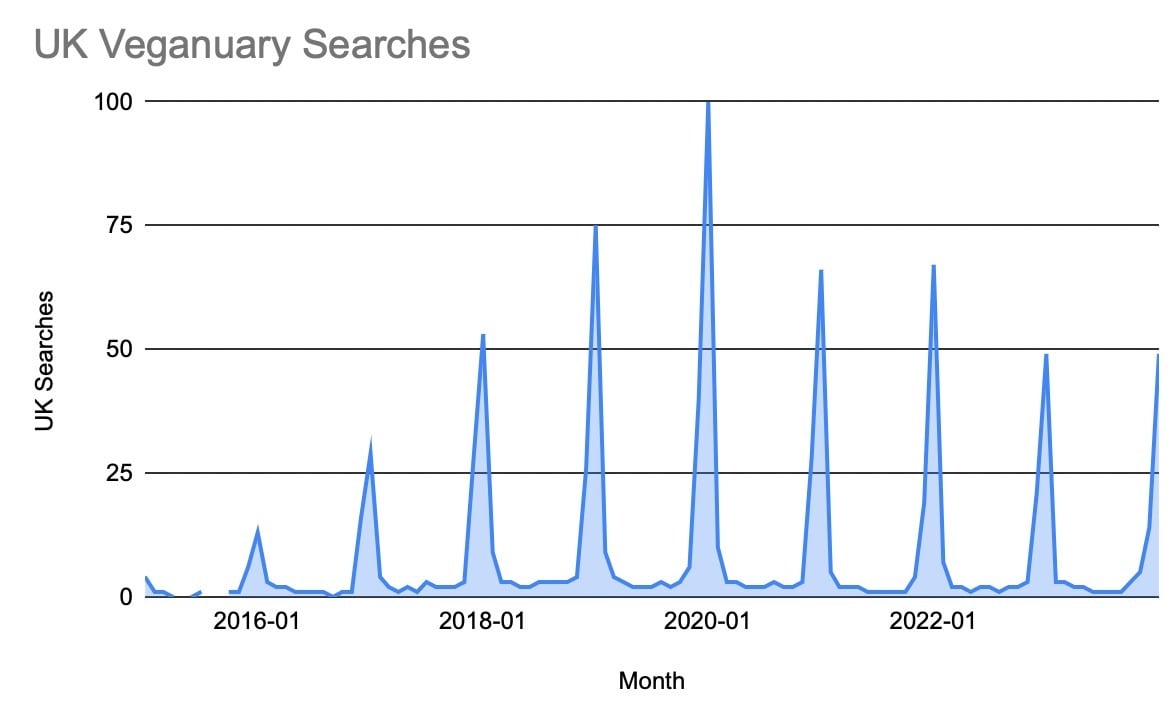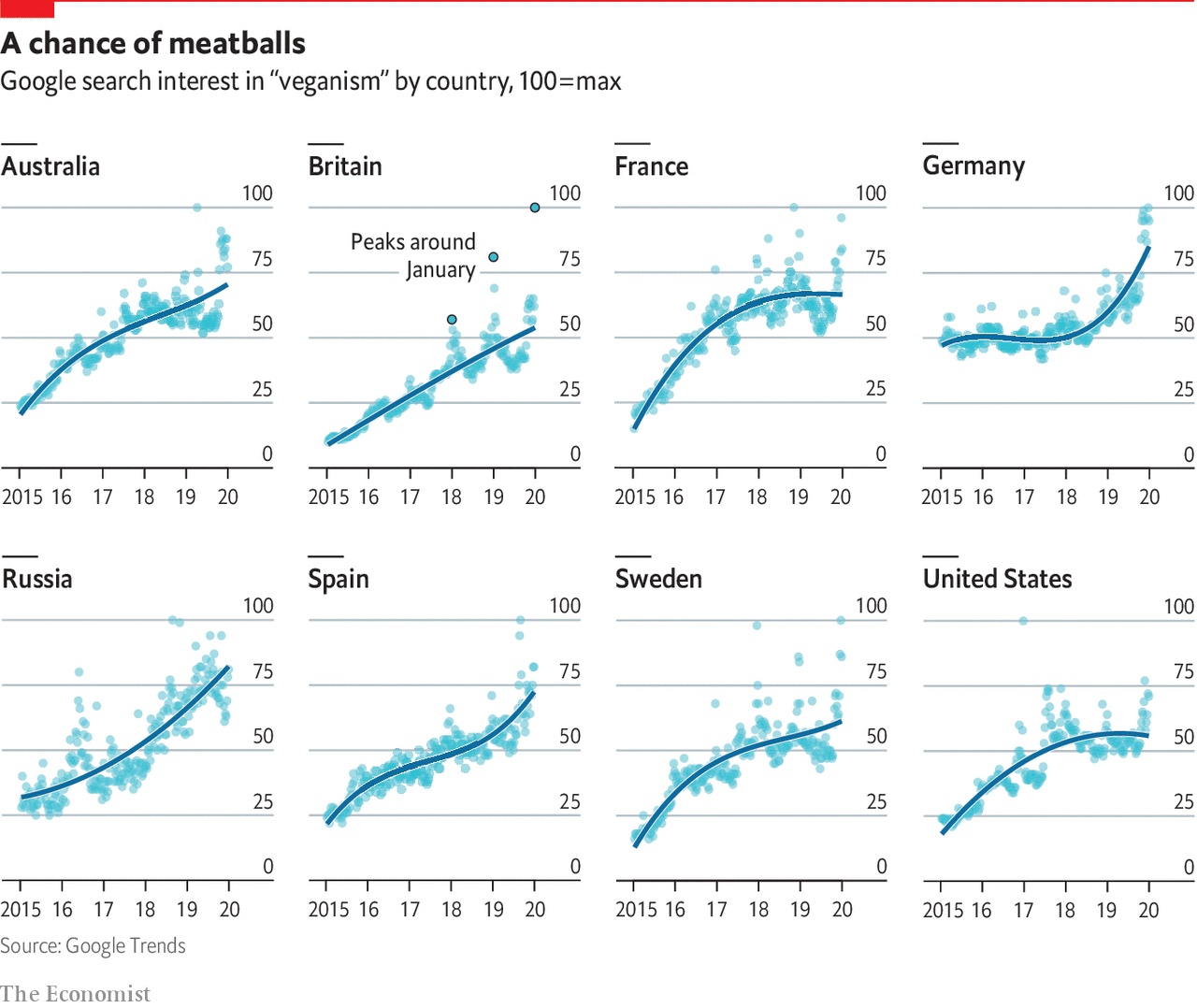For people short on time (like me), I’ll point out this article brief, highly skimmable, and full of self-explanatory graphs. It also briefly explains reasons the researchers think Veganuary succeeds where similar efforts have failed (i.e., the time of year and social experience).
At first glance, the evidence presented here seems quite impressive for near-term reductions in animal product consumption. However, it may not be as impactful as it initially seems (see the comments on this post).
To the extent that it is effective, I’m unsure whether it indicates significant moral circle expansion because many participants may already include farmed animals in their moral circle, meaning they aren’t expanding their moral circle, but instead accepting the implications of their moral circle (which may be a distinction without a difference, as both produce equally-good long-term consequences).




From the main body of the text: "Plant-based products represented 0·011 % of product unit sales in the pre-intervention period. This increased to 0·016 % during the intervention period and 0·012 % in the post-intervention period. Meat products represented 26·52 % of sales in the pre-intervention period, 26·51 % during the intervention period and 26·32 % in the post-intervention period. The remainder of sales were represented by non-meat products (73·47 % in pre-intervention and intervention periods, 73·67 % in the post-intervention period)."
One thing to flag on reading into this as evidence against plant-based sales leading to lower meat consumption is how much harder it will be to detect a significant effect on meat consumption. The background variation on those is much higher so to detect a significant effect from a campaign like Veganuary we would need a much larger total effect size. Even if the 0.05% of pre/post change in plant-based came 100% from meat I'd expect it still would not be significant.